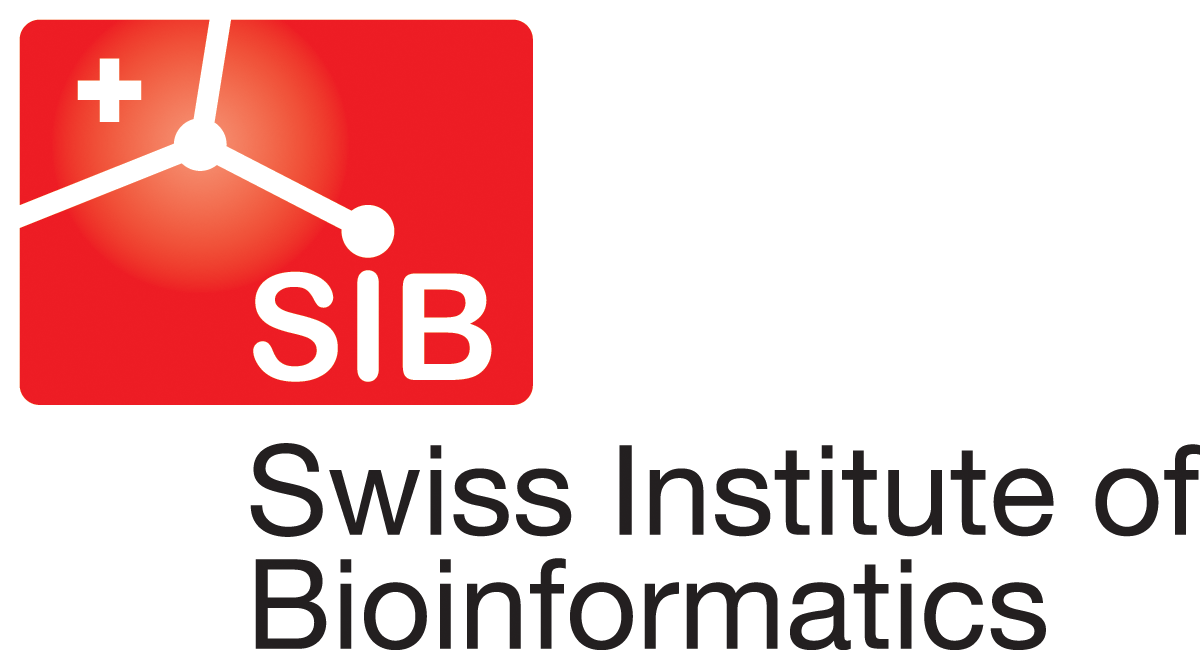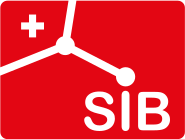SystemsX.ch and SIB Joint Summer School - Systems Medicine and its applications
Section outline
-



SystemsX.ch/SIB Joint Summer School: Systems Medicine and its applications
Kandersteg, 22-27 June 2014
Location: La Belle Epoque Victoria Hotel, Kandersteg
Systems Biology has played an essential role in unraveling the mechanisms that govern life. Our understanding of disease has also been deepened thanks to the cooperation between bioinformaticians and systems biologists. Discoveries in these areas help towards improving the precision of diagnostics, as well as allowing treatments to be increasingly personalized.
The growing importance of systems approaches in medicine has lead the Swiss Institute of Bioinformatics and SystemsX.ch to join forces to organize a Summer School for PhDs and postdocs entitled “Systems Medicine and its applications”. This course aims at training students and postdocs in cutting-edge methodologies relevant to biomedical research. It will also introduce classical as well as newly emerging fields of systems medicine and clinical bioinformatics applications. The course will address both theoretical sciences and clinical applications, including drug design and targeted therapies, the diverse uses of microbiomes, the application of big data efforts to the discovery and treatment of cancer or neurological diseases, etc.
The summer school will take place in Kandersteg, a charming small village in the Bernese Oberland (Swiss Alps). The beautiful and remote setting, along with the challenging program, were chosen to promote and enhance the communication and interaction amongst teachers and students. Lectures, hands-on sessions and round-table discussions will provide the necessary environment to generate lively and informative discussions.
Target audience: PhD students from Switzerland and abroad, with various backgrounds such as sys-tems biology, bioinformatics, computational biology, medicine, biochemistry, and willing to learn how to apply new computational approaches and big data to clinical problems. Format: Two lectures and practical/hands-on with computers per day.
Practical information
Format: Lectures, scientific papers’ discussion and practical/hands-on with computers.
Note: Participants will bring laptops (with preinstalled software). Wireless connection will be available in the classroom.Contact and Organization
Patricia Palagi
SIB Swiss Institute for Bioinformatics
Patricia.Palagi@isb-sib.chEavan Dorcey
SystemsX.ch
eavan.dorcey@systemsX.ch
Scientific Committee
- Ruedi Aebersold
- Jacqui Beckmann
- Manolis Dermitzakis
- Jörg Stelling
- Ioannis Xenarios
- Evgeny Zdobnov
-
General program
Sunday 22 June
Participants arrive all day long
19h: Welcome address, introduction, and dinner
Monday 23 June
Microbiome analysis for diagnostics of pathogens, systems level' health state readouts (biosensor), immediate environment characterisation
9:00 – 12:00 George Weinstock (Washington University, USA) - The Microbiome, Infectious Diseases, and Next-generation Sequencing
Abstract: The human microbiome, the microbes that colonize the human body, affect almost all aspects of human biology. Our understanding of the microbiome has exploded as DNA sequencing methods increased data production by orders of magnitude with a comparable decrease in cost. These advances are now being applied broadly in medicine as connections are sought between our microbes and health and diseases. Moreover, traditional infectious disease approaches are also being revolutionized by nucleotide-level tracking and characterization of pathogens. Together this is providing new insights into personal and public health.
12:00 – 13:30 Lunch
13:30 – 16:30 Jeroen Raes (VIB, Vrije Universiteit Brussels, BE) - NGS and novel computational approaches to investigate human microbiome
Big data efforts applied to disease understanding, diagnostics and treatments
17:00 – 18:30 Ioannis Xenarios (SIB Swiss Institute of Bioinformatics, University of Lausanne, CH)
19:00 – 20:30 Dinner
20:30 – 22:00 Ioannis Xenarios (cont., SIB Swiss Institute of Bioinformatics, University of Lausanne, CH) - Big Data efforts applied to disease understanding, diagnostics and treatment
Abstract: The presentation will cover several aspects of knowledge representation and efforts in the curation fields, I will dedicate the first part of the presentation to the resources currently at hand in the field of biology and medicine and describe a few research and development projects that tackle large scale data analysis in Cancer, Alzheimer and Diabetes. I will also introduce some area of systems modeling as way to prioritize treatments regimen and stratify the patient population.
-
Tuesday 24 June
Big data efforts applied to disease understanding, diagnostics and treatments
9:00 - 10:30 Prof. Norbert Graf (Universität des Saarlandes, Germany) - Information technology and personalized Medicine. A clinical perspective
Abstract: Medicine is undergoing a paradigm shift, which gradually transforms the nature of healthcare from reactive to preventive. The changes are catalyzed by a new approach to disease that has triggered the emergence of personalized medicine focusing on integrated diagnosis, treatment and prevention of disease in individual patients. The pre-‐requisites for this are the convergence of systems approaches to disease, new measurement, modeling and visualization technologies, and new computational and mathematical tools (http://www.cra.org/ccc/initiatives).
While the goal is clear, the path to it has been fraught with roadblocks in terms of technical, scientific, and sociological challenges. The first step to facilitate the gradual translation from current medical practices to personalized medicine is to bring together internationally recognised leaders in their fields to create an innovative computational, service-‐oriented IT infrastructure. The emphasis must be to provide an open, modular architectural framework for tools, models and services:
- to share and handle efficiently the enormous personalized data sets
- coming from clinical trials and
- hospital information systems (HIS)
- to ensure that policies for privacy, non-‐discrimination, and access to data, services, tools and models are implemented to maximize data protection and data security
- to enable demanding Virtual Physiological Human (VPH) simulations
- for which standardization and semantic data interoperability is a major issue
- to integrate models from system biology with VPH models
- to build and standardize tools and models
- for explicit reuse of tools and services
- to guarantee that tools, services and models are clinically driven and do enhance decision support
- to provide tools for large-‐scale, privacy-‐preserving data mining, and literature mining
- to enhance patient empowerment
The design and development of such a modular architectural framework is technologically challenging. In addition all tools, models and services need to be evaluated and validated by end-‐users. Usability of these tools is a major issue and is essential for starting a certification process. Feedback loops to developers for continuous improvements have to be integrated. Such an innovative architecture should promote the principle of open source. All tools, models and services have to be tested in concrete advanced clinical research projects and clinical trials that target urgent topics of the medical research community, a key area of societal importance. Maintenance and further developments of the framework need to be addressed from the beginning. To sustain such a self-‐supporting infrastructure realistic use cases have to offer tangible results for end-‐users in their daily practice. Teaching and educational programs for end-‐ users have to be implemented to facilitate the access to the platform and the use of tools, models and services.
10:30 - 11:00 Coffee break11:00 - 12:30 Prof. Norbert Graf - Demonstration of some tools and discussions
12:30 – 14:00 Lunch
14:00 – 17:30 Timothy W. Clark (Mass General Institute for Neurodegenerative Disease, USA) - Next-generation scientific publishing and scientific reproducibility
Lecture: This talk will review a series of problems in scientific communication traceable to the incomplete transition of printed material to the Web as well as relentless working of Moore's Law on scientific instruments. It will analyze various critiques and proposals for implementing the "next generation" in scientific publishing. This topic has exceptional importance for bioinformaticians because it promises / threatens to provide them with a potentially huge volume of data for meta-analysis. Likewise it has implications for industrial drug discovery and translational research.
14:50 Coffee break
15:00 Break into groups and discuss the following papers, which should have been read prior to arrival; prepare to present on them to the wider group.
Group A
- Begley CG, Ellis LM: Drug development: Raise standards for preclinical cancer research. Nature 2012, 483(7391):531-533.
- Arrowsmith J (2011) Trial watch: Phase II failures: 2008–2010. Nat Rev Drug Discov 10(5):328-329.
- Vasilevsky NA, et al. (2013) On the reproducibility of science: unique identification of research resources in the biomedical literature. PeerJ 1:e148.
- Helsby MA, Fenn JR and Chalmers AD (2013) Reporting research antibody use: how to increase experimental reproducibility F1000Research 2013, 2:153 (doi: 10.12688/f1000research.2-153.v2)
Questions: What do the first two papers suggest are probable causes of reproducibility failures? How do the second two papers address them? Are the solutions suggested adequate? Are there any practices of the pharmaceutical companies themselves that can lead to reproducibility failures?
Group B:
- Joint Declaration of Data Citation Principles, 2014: http://force11.org/datacitation
- Perkins, Lee & Tanentzapf, The systematic identification of cytoskeletal genes required for Drosophila melanogaster muscle maintenance. Nature Scientific Data (2014) doi:10.1038/sdata.2014.2
- Hu Y and Bajorath J (2012) Freely available compound data sets and software tools for chemoinformatics and computational medicinal chemistry applications F1000Research 2012, 1 10.12688/f1000research.1-11.v1
- Hiltemann S, et al. (2014) CGtag: complete genomics toolkit and annotation in a cloud-based Galaxy. GigaScience 3(1):1.
Questions: Briefly explain potential contribution of data citation to improve reproducibility. Are there other potential advantages? Review the three journal articles and comment on them in terms of the data citation principles.
15:50 Break
16:00 Groups A, B each have 20 minutes to present their conclusions + ten minutes each discussion time.
17:00 Concluding discussion: compare and contrast: Nature Scientific Data vs. F1000 Research vs. PeerJ vs. GigaScience as next-generation publishing efforts.
19:30 – 21:30 Dinner
- to share and handle efficiently the enormous personalized data sets
-
Wednesday 25 June
Human genomics variation, drug design targeting the right patient
8:30 – 12:00 Manolis Dermitzakis (SIB Swiss Institute of Bioinformatics, University of Geneva, CH) - From Population and Personalized Genomics to Personalized Medicine
Abstract: Molecular phenotypes are important phenotypes that inform about genetic and environmental effects on cellular state. The elucidation of the genetics of gene expression and other cellular phenotypes are highly informative of the impact of genetic variants in the cell and the subsequent consequences in the organism. In this talk I will discuss recent advances in key areas of the analysis of the genomics of gene expression and cellular phenotypes in human populations and multiple tissues and how this assists in the interpretation of regulatory networks and human disease variants. I will also discuss how the recent advances in next generation sequencing and functional genomics are informing us about the impact of regulatory variation in cancer. Finally, I will present some perspectives on how these developments are bringing us closer to the promise of personalized medicine.
12:00 – 17:30 Lunch. Track in the mountains or Speed presentations and poster session (weather dependent)
18:30 – 20:00 Dinner
20:00 – 23:00 Olivier Michielin (SIB Swiss Institute of Bioinformatics, University of Lausanne / CHUV, CH) - Targeting stage IV melanomas
Abstract: Progress in genomics with, in particular, next generation sequencing is revolutionizing oncology. The impact of these techniques is seen on the one hand on the identification of germline mutations that predispose to a given type of cancer, allowing for a personalized care of patients or healthy carriers and, on the other hand, on the characterization of all acquired somatic mutation of the tumor cell, opening the door to personalized treatment targeting the driver oncogenes. In both cases, next generation sequencing techniques allow a global approach whereby the integrality of the genome mutations is analyzed and correlated with the clinical data. The benefits on the quality of care delivered to our patients are extremely impressive. During this workshop we will illustrate how these approaches have changed the way we are now treating stage IV melanoma. Insights on the use of genetics and genomics data in clinical practice will be given. We will also discuss how genetic variants can be targeted with highly specific inhibitors.
Software installation:
VMD: http://www.ks.uiuc.edu/Development/Download/download.cgi?PackageName=VMD
UCSF Chimera: http://www.cgl.ucsf.edu/chimera/download.html
Reading material:
-
Thursday 26 June
Big data efforts applied to disease understanding, diagnostics and treatments
9:00 – 12:30 Track in the mountains or Speed presentations and poster session (weather dependent)
12:30 – 14:00 Lunch
14:00 – 17:30 Rune Linding (Technical University of Denmark, DK) - Decoding Network Dynamics in Cancer - Cancelled
Abstract: Biological systems are composed of highly dynamic and interconnected molecular networks that drive biological decision processes. The goal of network biology is to describe, quantify and predict the information flow and functional behavior of living systems in a formal language and with an accuracy that parallels our characterization of other physical systems such as Jumbo-jets. Decades of targeted molecular and biological studies have led to numerous pathway models of developmental and disease related processes. However, so far no global models have been derived from pathways, capable of predicting cellular trajectories in time, space or disease. The development of high-throughput methodologies has further enhanced our ability to obtain quantitative genomic, proteomic and phenotypic readouts for many genes/proteins simultaneously. Here, I will discuss how it is now possible to derive network models through computational integration of systematic, large-scale, high-dimensional quantitative data sets. I will review our latest advances in methods for exploring phosphorylation networks. In particular I will discuss how the combination of quantitative mass-spectrometry, systems-genetics and computational algorithms (NetworKIN [1], NetPhorest [4] and KinomeXplorer [10]) made it possible for us to derive systems-level models of JNK and EphR signaling networks [2,3]. I shall discuss work we have done in comparative phospho-proteomics and network evolution[5-7]. Finally, I will discuss our most recent work in analyzing genomic sequencing data from NGS studies and how we have developed new powerful algorithms to predict the impact of disease mutations on cellular signaling networks [8,9]. I shall illustrate the power of these approaches in a recent study where we have identified colon cancer metastasis cell signaling networks.References:- Linding et al., Cell 2007.
- Bakal et al., Science 2008.
- Jørgensen et al., Science 2009.
- Miller et al., Science Signaling 2008.
- Tan et al., Science Signaling 2009.
- Tan et al., Science 2009.
- Tan et al., Science 2011.
- Creixell et al., Nature Biotechnology Sep 2012.
- Erler & Linding, Cell May 2012.
- Horn et al., Nature Methods 2014.
19:30 – 21:30 Dinner
-
Friday 27 June
Personalized medicine - Prof. Rudi Balling (University of Luxembourg, Luxembourg)
9:00 - 9:40 Talk by Prof Balling on "Interdisciplinarity: Easier said than done"
9:40 - 10:00 Discussion
10:00 - 10:30 Coffee break
10:30 - 11:40 Talk by Prof Balling on "Parkinson's disease: From Systemsbiology to Systemsmedicine"
11:40 - 12:30h Open discussion on "What I always wanted to know about personalized medicine"
12:30 – 14:00 Lunch14:00 Departures
